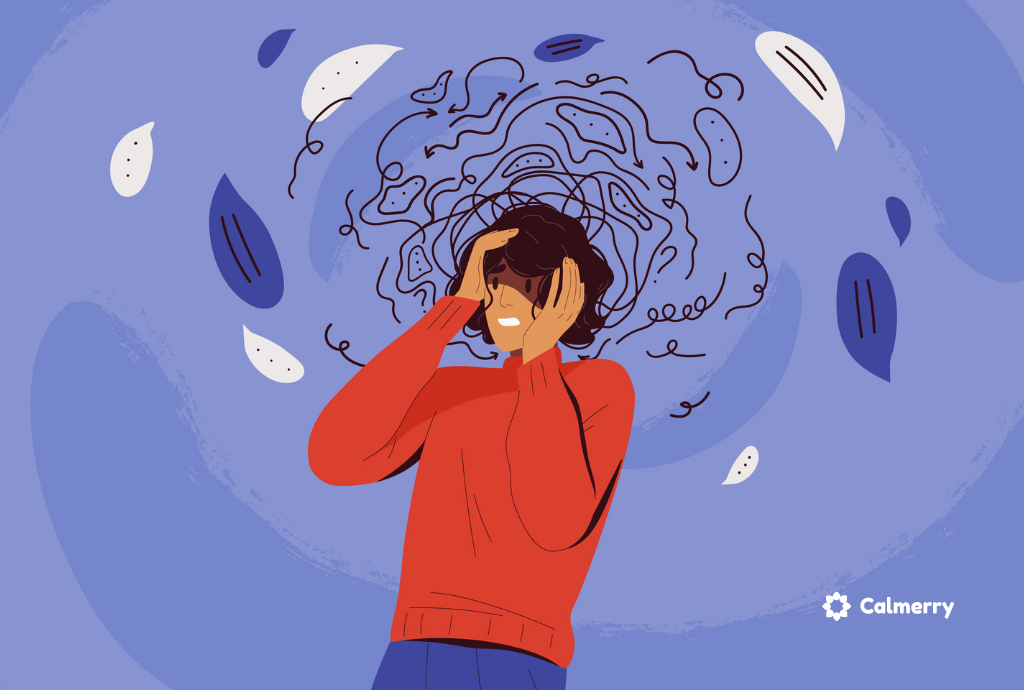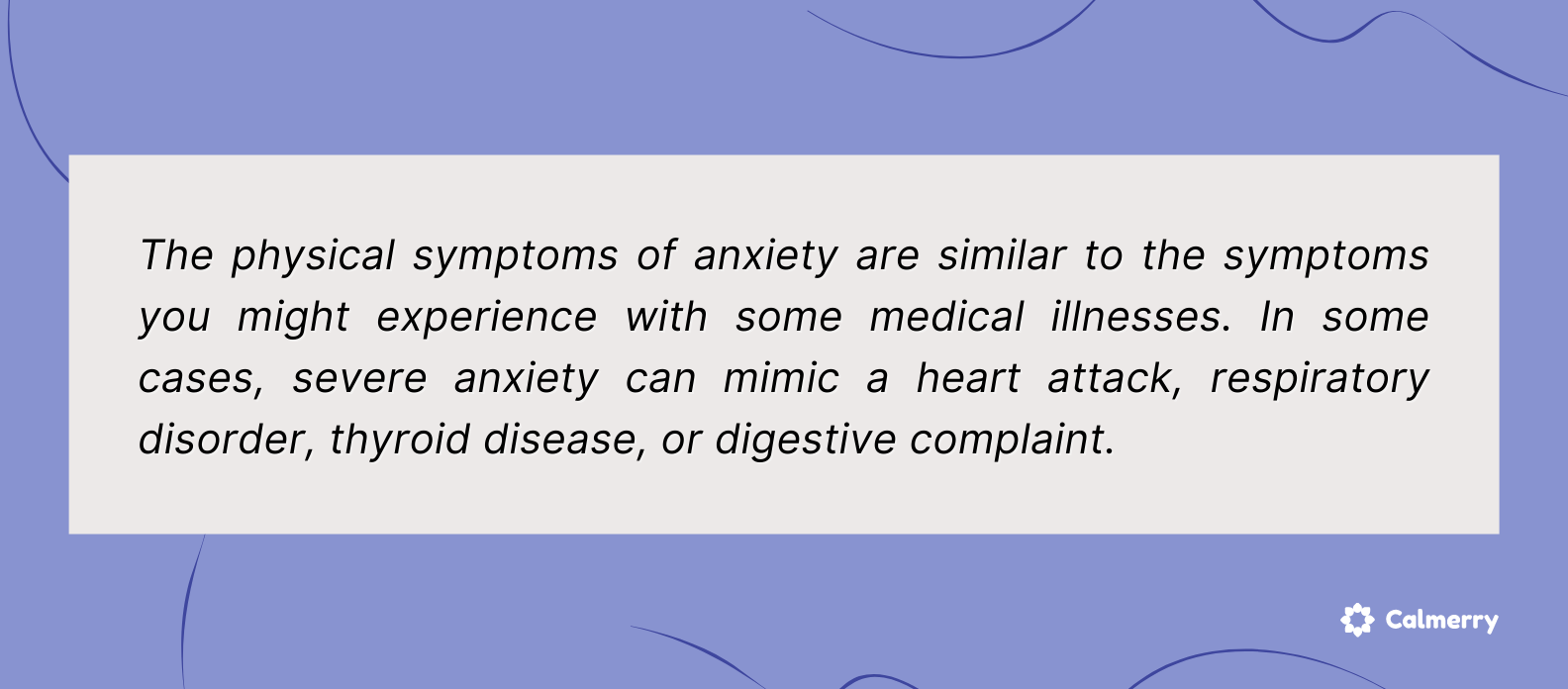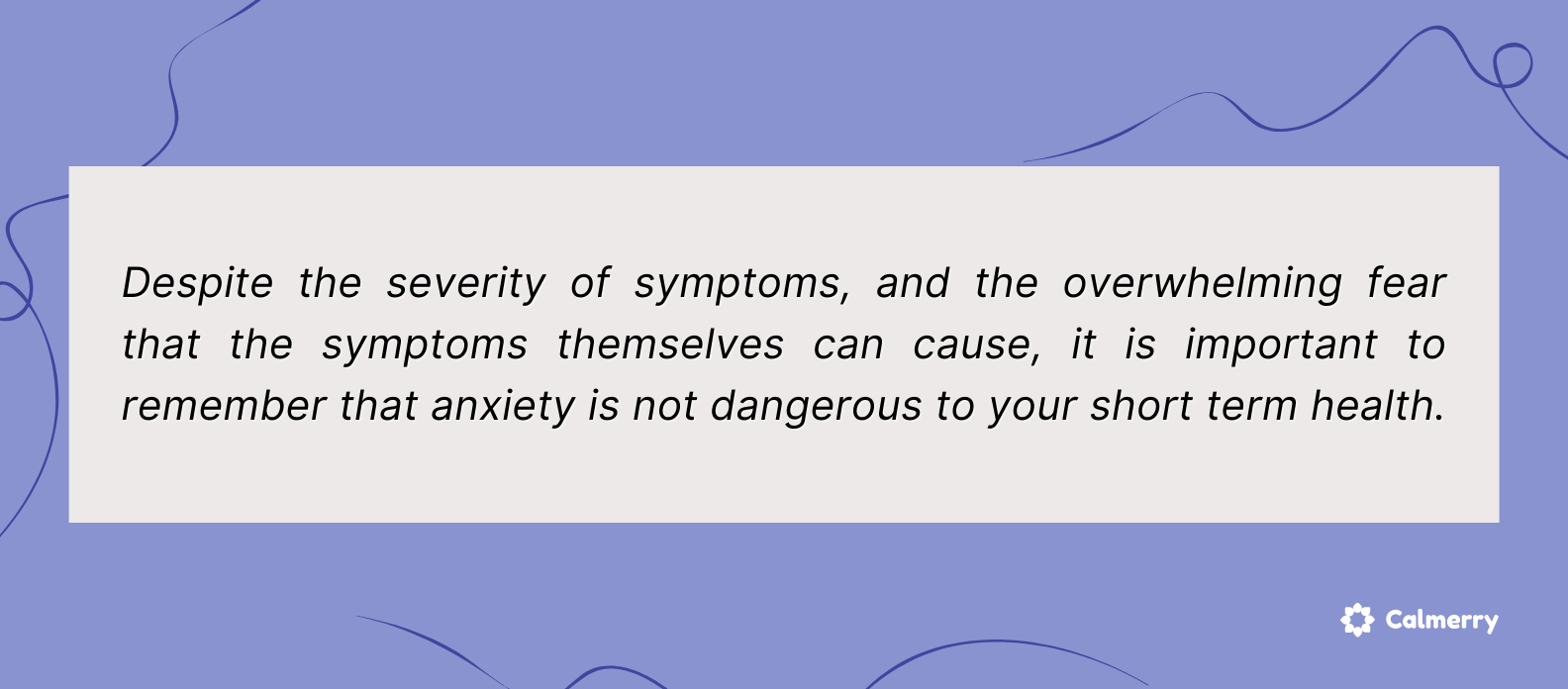Can Anxiety Kill You? How to Cope with the Distressing Experience

In this article
Anxiety is a common mental health condition, but it can cause considerable distress and concern to those who experience it. In fact, the physical symptoms can be so intense and severe that some people feel that they are dying when an episode of intense anxiety occurs.
Let’s look at the biological and psychological basis of anxiety, its common symptoms, and answer the question can anxiety kill you?
Anxiety in the USA
In the USA, anxiety disorders are the most common mental illness. 18.1% of the population is affected every year. Anxiety can occur as a result of traumatic or upsetting life events, genetic risk factors, brain chemistry, or personality traits. For some, the cause of anxiety remains unknown.
With so many people affected by anxiety, you are not alone in your concerns. One of the best ways to begin managing your anxiety is to understand the condition better and consider therapy for anxiety as a valuable resource for support and treatment.
Psychological and physical anxiety symptoms
Anxiety can cause physical and psychological symptoms. Psychological symptoms include excessive worrying or obsessing over certain thoughts, feeling nervous, and being unable to concentrate, relax or sleep.
The physical symptoms of anxiety can be less well-known and include:
- Palpitations (feeling your heart racing)
- Feeling breathless
- Feeling light-headed or dizzy
- Sweating
- Tremor or feeling shaky
- Headaches

The physical symptoms of anxiety are similar to the symptoms you might experience with some medical illnesses. In some cases, severe anxiety can mimic a heart attack, respiratory disorder, thyroid disease, or digestive complaint.
Because anxiety can lead to severe symptoms that seem to have a physical origin, such as your heart racing or feeling like you might collapse, many people find themselves asking, can you die from anxiety?
Can you die from a panic attack?
A panic attack is a sudden, intense feeling of anxiety. It can occur suddenly, making it feel even more overwhelming and terrifying.
During a panic attack, your breathing might become rapid, your fingers or lips may start to tingle, or you might feel that you are losing control. Some people experience pain and become convinced that they have a heart attack. It is not unusual to become so concerned by your symptoms that you attend the hospital convinced that something other than anxiety is causing you to feel unwell.

Despite the severity of symptoms and the overwhelming fear that the symptoms themselves can cause, it is important to remember that anxiety is not dangerous to your short-term health.
Why anxiety feels so scary
Anxiety is a form of fear. Unfortunately, feeling your heart racing or becoming breathless because of anxiety can in itself feel very scary, too. So, the symptoms of anxiety can fuel your feelings of fear even further by making you feel afraid that there is something wrong with your physical health.
It is important to take steps to begin managing your mental health so that the cycle of anxiety can be broken.
The good news is that anxiety and panic attack symptoms themselves are not fatal. However, in the long term, anxiety can lead to physical health complications. Studies have shown that anxiety can have biological effects on the body, including an increased risk of heart disease, a weakened immune system, and more frequent migraines.
If you have had anxiety for a long time, it can be worrying to read that the condition may have an adverse effect on your overall health. However, the most important thing is that you can now take steps to manage your emotions and work through anything that might have caused, or continues to cause, your anxiety.
How can I manage overwhelming anxiety?
Anxiety can be debilitating. In fact, anxiety tends to be more disabling for women than it is for men. Recognizing that you have anxiety, and taking steps to manage it, is a great first step.
Now we will explore ways you can manage panic attacks and low-level anxiety to reduce fear and help you to take back control of your life.
Talk to friends
With almost a fifth of the US population affected by anxiety each year, the chances are your friends or family will either have experienced anxiety firsthand or will know someone else who has.
Talking about your symptoms, the effect they have on your life, and even the trigger for your anxiety can help to relieve you of your burden. Although you might see your anxiety subjectively, a friend or colleague can be more objective in seeing things differently or making helpful suggestions.
Seek professional advice
Although those close to you are a good starting point, online therapy offers you a safe space to talk freely without the fear of judgment or misunderstanding. Finding a counselor who can listen carefully to what you say and make professional suggestions can feel reassuring.
A therapist is also likely to offer practical techniques or exercises for you to try every day to manage or calm your anxiety.
Look after your physical health
Emotional and physical health are intrinsically linked. When you endeavor to support your mental health, you must also be sure that you are taking care of your biological needs. Eat healthily, take regular exercise (even a walk around the block will help), and avoid caffeine, alcohol, and nicotine where possible.
Seek treatment
For some people, a short course of anti-anxiety medication provides a starting point for taking control of anxiety. Speak to your doctor if you think that this might be a suitable short-term approach for you.
Learn to cope with panic attacks
The severity of a panic attack and its unpleasant symptoms can lead you to question, can panic attacks kill you? The physical symptoms feel real, but their origins are psychological. With this in mind, try to remember that you will be OK, and the panic attack will end.
If you have a panic attack, there are three things you should do:
Focus on your breathing
Concentrate on breathing in and out slowly and steadily, gradually holding each breath for longer. This simple technique is particularly helpful when you are carried away by negative emotions.
Find a safe space
If a certain situation triggers a panic attack, move somewhere new so that you can calm your thoughts. If you are in the backyard, you might feel safer in the house. If you are in a shopping mall, head back to your car. If it isn’t possible to leave a situation, visualize being in a safe space such as your bedroom or your favorite beach.
Ground yourself
It can be easy to lose touch with the world around you during a panic attack. Take note of five things you can see, feel, smell, hear, or taste, remind yourself of the date, or say out loud where you are.
Some people find it helpful to download an anxiety App that can be accessed during or after a panic attack. Guided meditations or breathing exercises can help to calm you during an intense period of stress or panic.
Final thoughts
Anxiety and panic attacks are not fatal. However, the symptoms can be very unpleasant, and chronic anxiety can lead to an increased risk of some medical conditions. So, it’s important to try different techniques to manage the cause of your anxiety and its symptoms. So, it’s important to try different techniques, such as therapy with a service like Calmerry, to manage the cause of your anxiety and its symptoms.
Seeking advice from a professional can offer much-needed support and guidance as you begin your journey to good mental health.
online therapy
live video session



